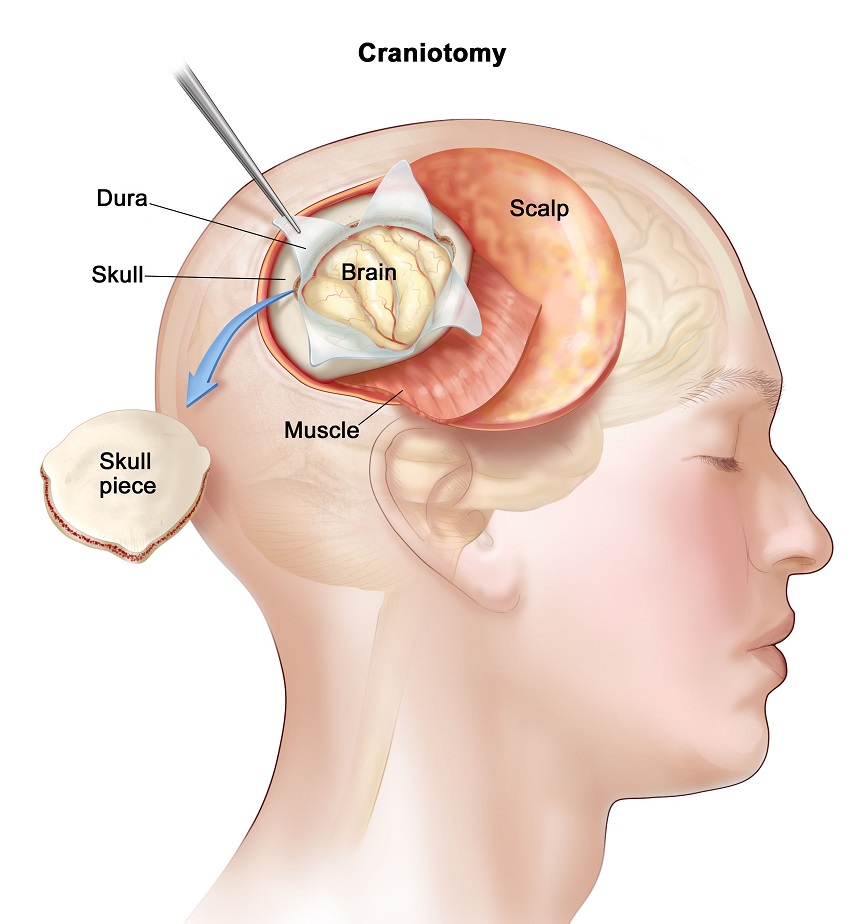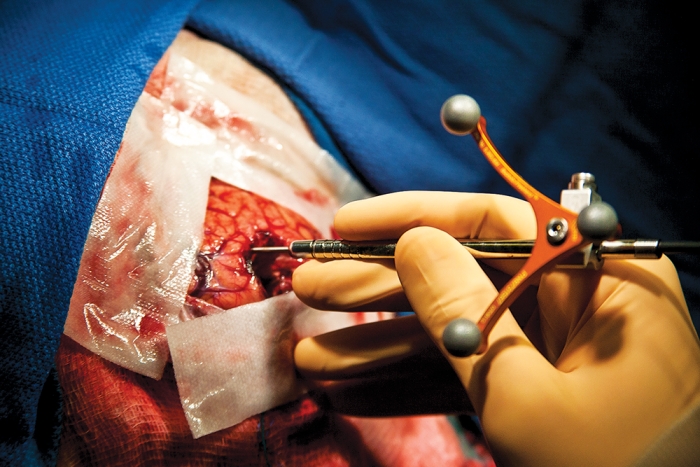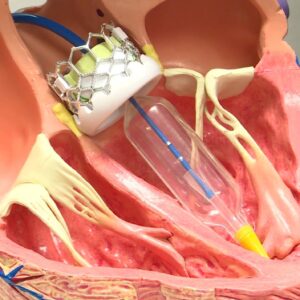Description
Brain tumor surgery is a complex procedure performed by a neurosurgeon to address tumors in the brain. Here’s a breakdown of the key aspects:
Procedures:
There are two main types of brain tumor surgery:
- Craniotomy: This is the most common type. The surgeon makes an incision in the scalp, removes a section of the skull (bone flap) to expose the brain. They can then:
- Remove the tumor: The goal is complete or maximal safe removal of the tumor.
- Perform a biopsy: A tissue sample is taken for diagnosis to determine the tumor type.
- Endoscopic surgery: This minimally invasive technique uses a thin, flexible tube with a camera (endoscope). It’s inserted through a small incision in the skull or nostril, allowing visualization and access to tumors in specific locations. This procedure is often used for:
- Biopsy: To obtain a tissue sample.
- Removal of tumors in fluid-filled spaces: These spaces are called ventricles.
Who is it Suitable for?
Brain tumor surgery may be recommended for individuals with:
- Cancerous or symptomatic tumors: If the tumor is cancerous or causing symptoms like headaches, seizures, or weakness, surgery may be an option to remove all or part of it.
- Biopsy needed: When a tissue sample is crucial for diagnosis to determine the tumor type and guide further treatment.
- Pressure relief: To alleviate pressure on the brain caused by a tumor, improving symptoms.
Who is it Not Suitable for?
Brain tumor surgery may not be suitable for everyone, particularly if:
- Location: The tumor is located in a critical area of the brain, making safe removal difficult.
- Overall health: The patient has other health conditions that make surgery too risky.
- Slow-growing tumor: The tumor is slow-growing or responds well to other treatments like radiation or medication.
Advantages:
- Potential cure: Complete tumor removal offers a chance of curing cancer.
- Accurate diagnosis: A biopsy provides crucial information about the tumor type for targeted treatment.
- Symptom relief: Surgery can significantly improve quality of life by alleviating pressure and reducing symptoms.
Complications:
- Infection: There’s a risk of infection at the surgical site, as with any surgery.
- Bleeding: Bleeding in the brain can occur during or after surgery.
- Neurological deficits: Depending on the tumor and surgery location, there may be damage to nerves leading to weakness, paralysis, or speech problems.
- Seizures: Brain surgery can increase the risk of seizures.
Previous Care:
Before surgery, a comprehensive evaluation is necessary:
- Imaging tests: MRI scans for detailed brain and tumor images, and CT scans for a three-dimensional view of the brain and skull.
- Neurological exams: To assess your brain function and identify any potential deficits.
- Anesthesiology consultation: To discuss anesthesia options and potential risks.
Postoperative Care:
Following surgery, you’ll be monitored in the ICU for several days. Recovery time varies depending on the surgery’s extent and your overall health. Rehabilitation may be necessary to address any neurological deficits and help you regain strength and function.
Additional Points:
- Brain tumor surgery is a major decision. Discuss the risks and benefits thoroughly with your doctor to make an informed choice.
- Advancements in technology are improving the safety and effectiveness of brain tumor surgery. These include image-guided surgery for precise tumor location and minimally invasive techniques for faster recovery.









Reviews
There are no reviews yet.